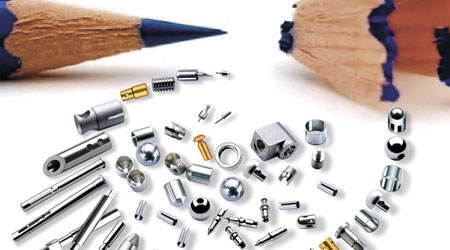MCM Seeks To Invest In The Medical Device Market

Our investment interest in the medical device market is predicated upon several macro-economic drivers including device innovation, favorable demographics, and hospital austerity. Researcher’s believe these key factors will drive the global medical device market to over $300 billion this year. Analysts presage a $312 billion medical device market in 2011 and forecast roughly 4-6% growth for the next few years. Over the past 24 months growth has been slow given the world recession, but as the economy recovers and the rise of a new middle class in emerging markets (India and China) demand better health-care services, the device industry will continue to grow for the foreseeable future.
Reinforcing our interest in this industry is our successful experience with former portfolio company MicroGroup, a supplier of precision engineered tubing and components serving medical device OEMs. We invested in MicroGroup in 2002 and exited in 2006 realizing a return 3.4x our invested capital. MicroGroup’s success was driven in part by the positive industry dynamics elucidated above.
While we find the medical device industry to be attractive from an investment standpoint it is not without its challenges. Today, the industry faces a looming challenge in the form of a US imposed 2.3% sales tax on all medical devices intended for human use. Some reports indicate that the new tax will help accelerate the need for manufacturers to outsource medical devices and device parts in order to make up for the lost margins.
Ironically, in the late 1990’s, Ireland, in an effort to jump start a targeted industry, provided lucrative tax incentives for foreign medical device OEMs to relocate manufacturing operations and source components from Irish suppliers. As a consequence many prominent OEMs, such as Boston Scientific and Medtronic took advantage by establishing operations in Ireland. This had a temporary negative impact on US suppliers which we observed first-hand with MicroGroup losing ~ $3 million of catheter fabrication revenues to Irish based contractor Creganna. However, the overall growth of the medical device space, combined with the need for world class manufacturing capability and customer support allowed Microgroup to continue its growth trajectory (MicroGroup case study).
Generally speaking, contract manufacturers serving the medical device market enjoy healthy profit margins. While the contract manufacturing of certain higher volume medical devices such as catheters have become more price competitive, in other niche segments margins remain healthy as demand for high precision, tight tolerance parts continues to rise. Significant barriers to entry created by strict FDA regulations and approval processes, along with potential OEM liability issues somewhat insulate domestic manufacturers from foreign competition.
The imposed tax may cause price pressure, but we believe those companies that are well managed will be able to mitigate the impact of the excess tax. We believe a business offering world class service and precision fabrication capabilities will have the ability to distinguish itself from competition, both foreign and domestic, which translates into solid profit margins and customer loyalty. Our direct marketing efforts coupled with our prior investment experience with MicroGroup have exposed us to a number of medical device suppliers currently benefiting from the positive macro drivers reinforcing the validity of our investment thesis. Further, the competitive landscape is populated with a large number of small cap precision manufacturers serving the medical device market providing us the ability to continue to be opportunistic while searching for potential investment candidates
MCM Capital Partners is a Cleveland based micro-cap private equity fund investing in niche manufacturers, value added distributors and specialty service businesses. For more information on our private equity firm and investment principles, contact us today.




